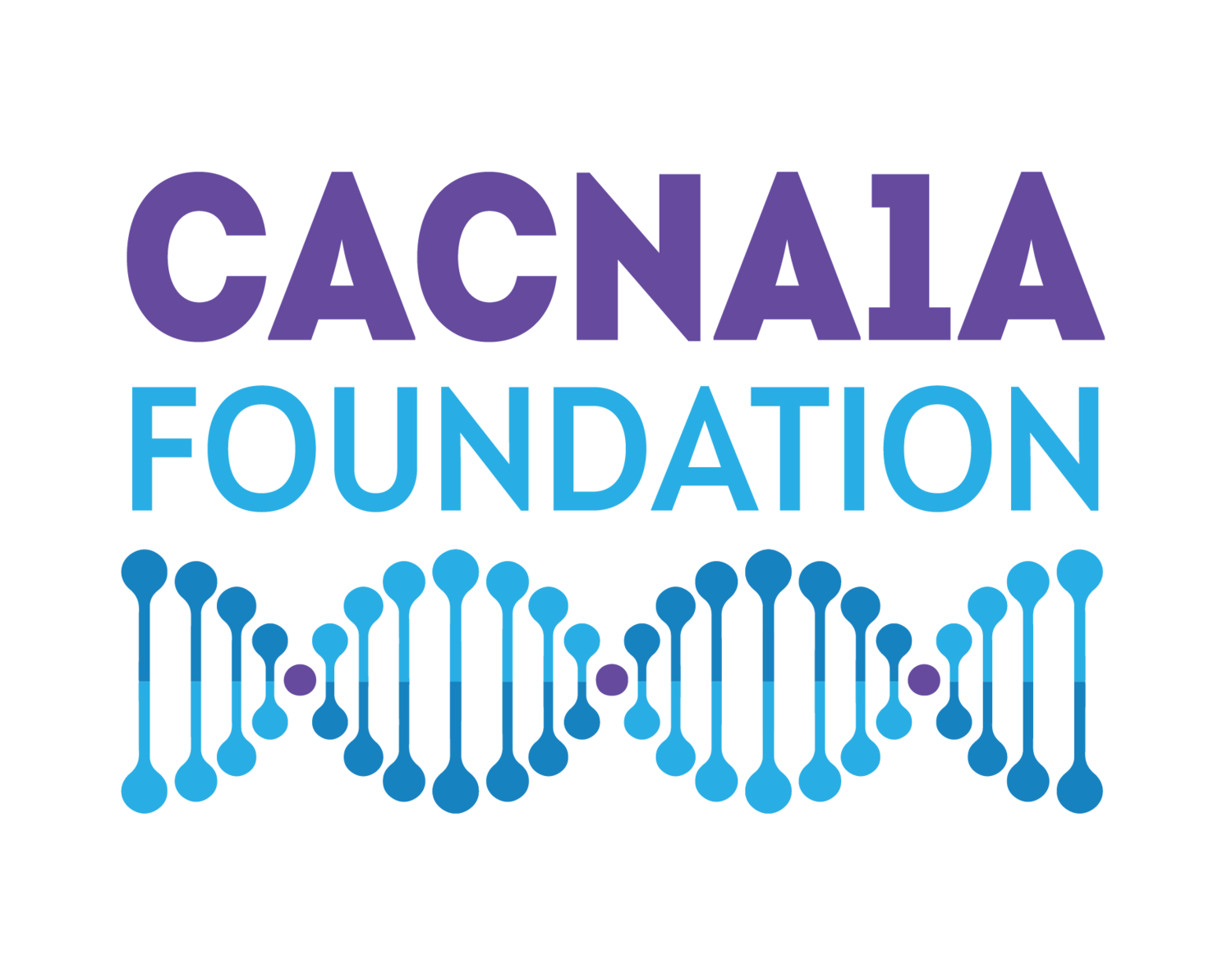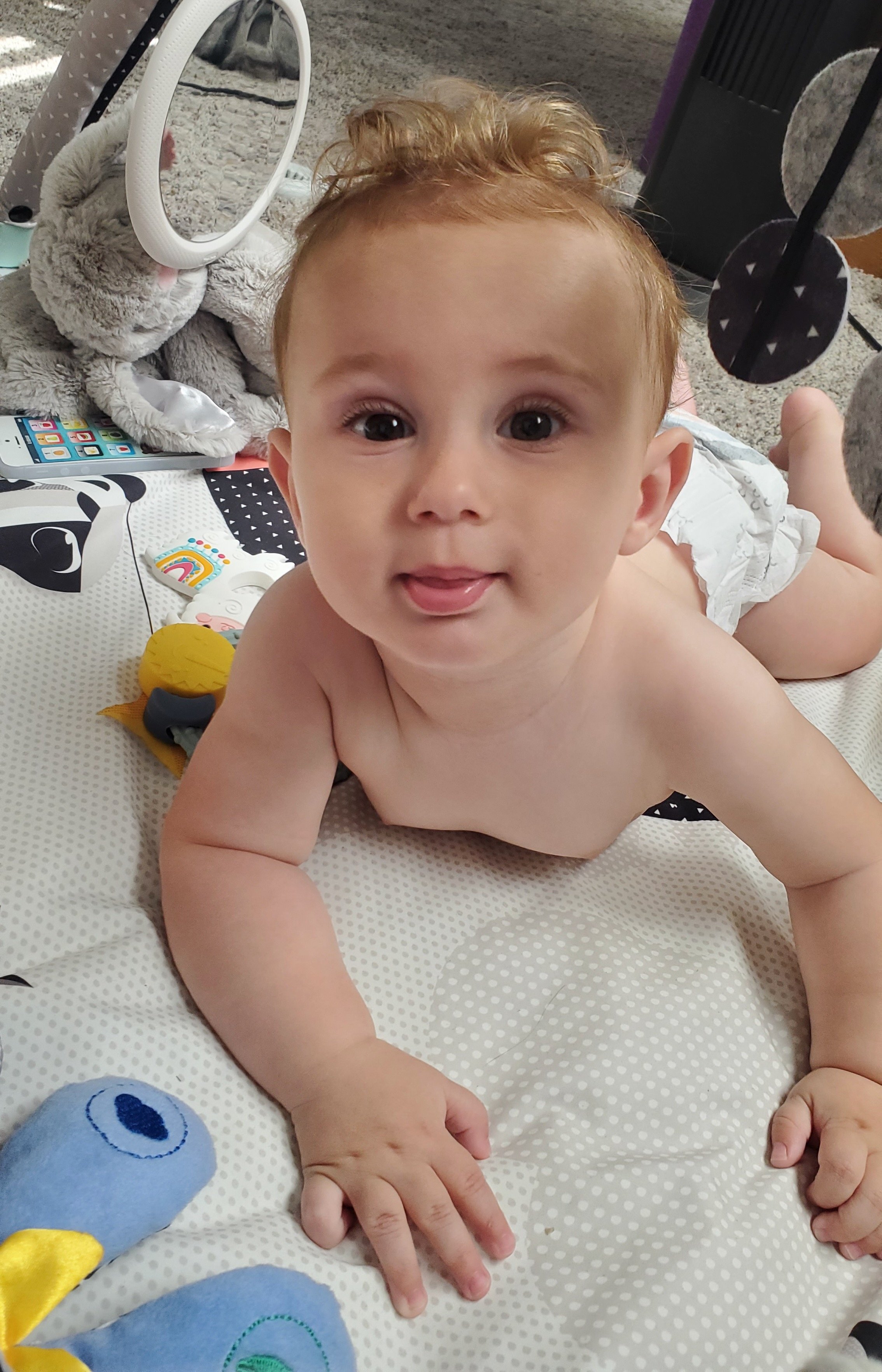Finnegan’s Story
Finn is a determined and passionate little boy who is extremely social and loves to visit with all ages. Although he struggles with developmental delays, according to his mom, Jossy, every expert they have ever encountered believes he will eventually achieve all his goals because of his drive.
Variant: R1349Q
History
Finnegan is almost two years old. When he was four months old, we became aware that his development was atypical. He has had one episode of febrile status epilepticus, but we do not believe he has had other seizures. At six months of age, Finn had the first of what we now consider to be non-epileptic episodes because we can stop them by rubbing his cheek. (According to our neurologist, it's not a seizure if we can bring him out of it.) He was diagnosed with a CACNA1A variant at nine months old.
Finn presents with global developmental delays and hypotonia. From a gross motor standpoint, he is still not sitting independently, crawling, or walking. Finn communicates with us, in his own way, by babbling but does not use signs or proper words. He does not actively feed himself, dress or undress himself, and does not play with toys appropriately. Although, he is making progress in this area! Socially, Finn loves both adults and other kids but does not interact appropriately.
Finn struggles with his body not doing what he wants it to do. He gets frustrated when he wants to do something but cannot complete the task himself. Yet, he's determined and will throw a fit if you try to help him.
He is a horrendous sleeper, getting up roughly every half an hour through the night, and needs assistance to get back to sleep.
Diagnoses
Global Development Delay
Ataxia and Hypotonia
Nystagmus
Paroxysmal Tonic Upgaze
Therapies
Each week, Finn sees a chiropractor, and through the state of California's early intervention program, a physical therapist comes to our home to work with him and educate us on what exercises and activities to do with him to help build his skills. In addition, Early Intervention provides a teacher that comes to our home to work with him on his cognitive and social skills. Swimming seems to have expanded his movements.
For Those Newly Diagnosed
Take one day at a time. I know it is overwhelming, but you are strong, and it's ok to cry.
Ask for help! Most of your friends and family only know what you need if you specifically ask, so do so.
Don't be afraid to seek second opinions or try alternative treatments. Every one of our babies is different, and they may respond to something not yet tried.
Do not be afraid to tell your doctor what you want to do. Ultimately, you know your child best.
Don't be afraid to talk to strangers about your child. Some of the best advice I've been given came because I spoke to a stranger who shared their experience with special needs, therapies, or medical professionals.






